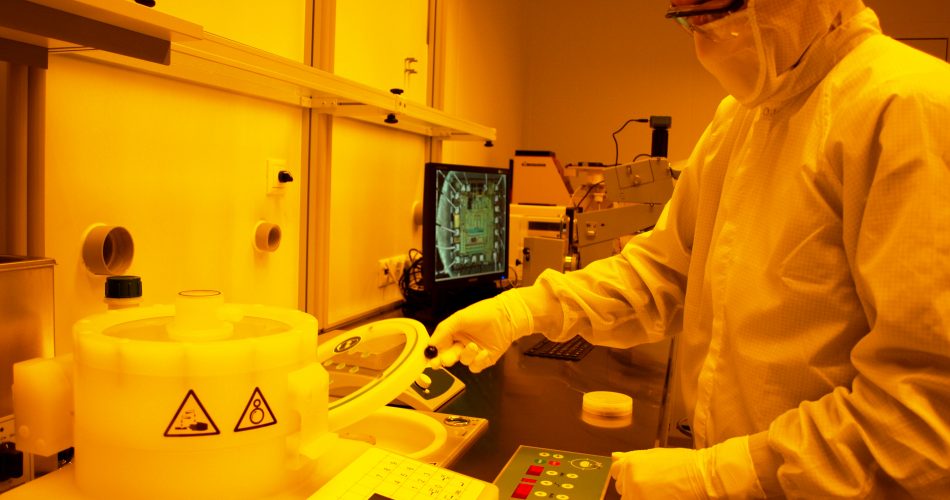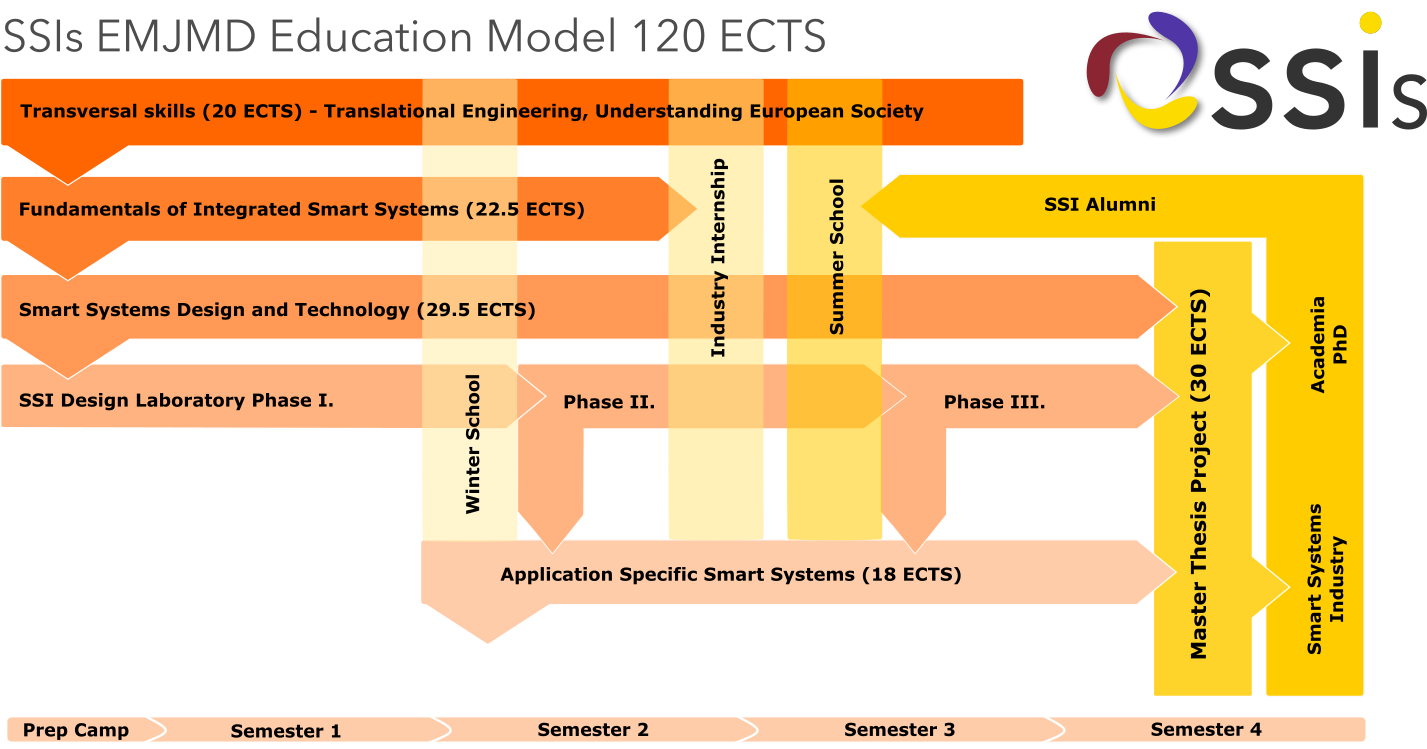Programme

An Overview of the Study Programme
The 120 ECTS SSIs MSc Programme is studied over four semesters, the students will spend one semester at each of the three universities, taking full advantage of the recognised expertise, the research and educational facilities of each university. The curriculum is designed to provide a general understanding of smart systems integration with a strong emphasis on design practice. This approach is fulfilled by teaching solid theoretical knowledge reflecting the main socio-economic challenges of future engineers (sustainability, life-cycle assessment and design for reliability), and state of the art design methods for highly efficient engineering products (system level design, Multiphysics modelling). The unique infrastructure available in the three universities (clean room facilities, advanced material and microstructural analysis laboratories, state of the art computer aided design tools) adds modern engineering practice to the theoretical basis.
An innovative concept of this programme is the learning-by-doing approach delivered in the framework of a design project that runs over three semesters. This element gives an opportunity for the students to work on a long term, multi-field and multinational project with design, fabrication and characterisation. Starting from a conceptual design and understanding of the market needs, the goal of this project by the end of the third semester is to build up and demonstrate a functional prototype of an actual system.



